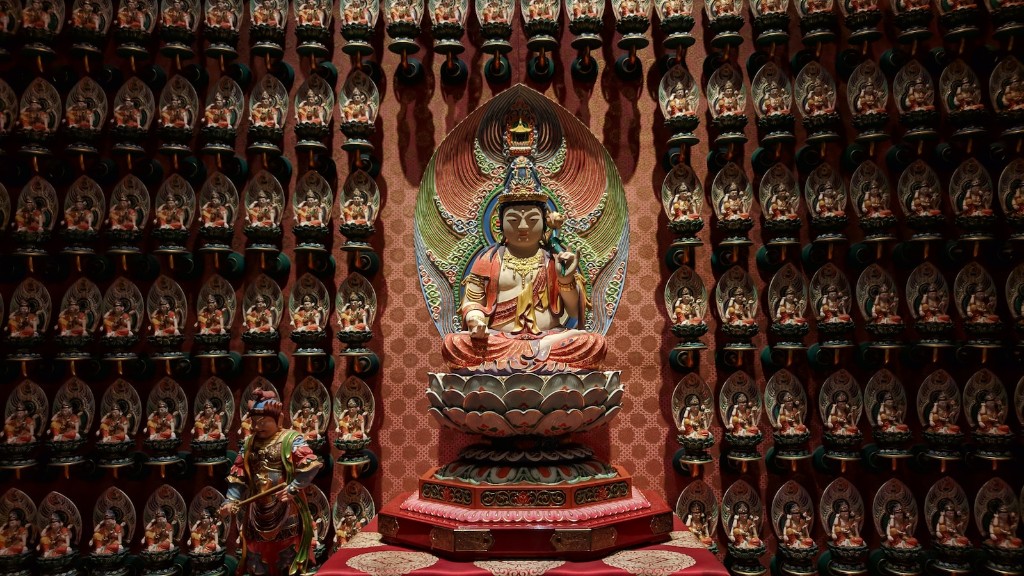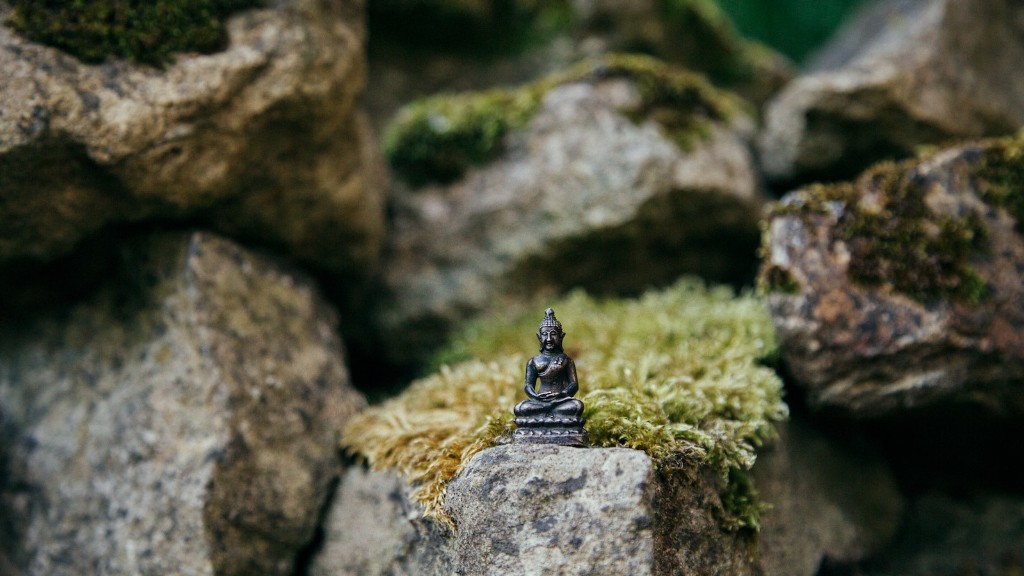History of Hinduism and Its Gods
Hinduism is one of the world’s oldest religions, with its roots in India. It has been around since at least the second millennium BCE, making it roughly 5,000 years old. Though the practice has changed over time, its core beliefs remain the same—that the universe is connected and tied together, that all beings share an inherent spiritual connection.
The Hindu pantheon includes many gods, but the main ones are Vishnu, Shiva, and their consorts Lakshmi and Parvati. Vishnu is the preserver of the universe with the power to create or destroy. He’s often depicted with four arms either seated or sleeping on a giant snake. Shiva is the ‘destroyer’ of the universe and is a source of creative energy. He’s often depicted with four arms, a trishul (trident), and a third eye.
Lakshmi is Vishnu’s consort and is usually portrayed as a beautiful woman with four hands. She’s the goddess of wealth, fortune, and prosperity. Parvati is Shiva’s consort, usually pictured as a beautiful young woman with a third eye and seated on a tiger skin. She represents power, strength, and fertility.
Though the Hindu pantheon is vast and complex, the core deities are Vishnu, Shiva, Lakshmi and Parvati. All of these gods are important in Hindu mythology and culture, and each of them has their own stories, symbolism and rituals associated with them.
Importance of Hindu Gods
Hinduism is a complex religion with many gods and goddesses. Each of these gods and goddesses represents a different concept or aspect of the divine. Hindus recognize and honor these gods, and many will pray to them for help in their lives. Hindus also believe that each of the gods is an aspect or manifestation of the one divine being, Brahman.
For Hindus, the gods are important because they represent aspects of this divine being. Each god has a specific purpose or task, and each god is necessary for the maintenance of the world and its order. Hindus often evoke the gods in prayer and ritual.
The presence of gods in Hinduism has a spiritual significance. People often seek blessings or guidance from the gods in their lives, and they may view their own god as a direct representative of the divine. Additionally, some Hindus believe that the gods are a means of understanding the divine and a way of expressing love and devotion to it.
Hinduism Festivals and Rituals
Hinduism has many festivals and rituals that are still practiced today. These festivals and rituals are often related to the religions’ gods, including Vishnu, Shiva, Lakshmi and Parvati. One of the most important Hindu festivals, Diwali, is celebrated in honor of Lakshmi, who is the goddess of wealth, fortune, and prosperity. Other festivals and rituals are also related to the other gods, such as the annual Shivratri which is celebrated in honor of Shiva.
The festivals and rituals serve as a way for Hindus to honor and connect with the gods, as well as to celebrate the Hindu cosmology. At these festivals, Hindus often invoke the gods, offer prayers, and create special symbols of devotion. Additionally, the festivals often involve both public and private ceremonies, such as puja ceremonies and ceremonial processions. These festivals and rituals provide a way for Hindus to express their reverence for the many aspects of the divine.
Images and Symbols Associated with Hindu Gods
The Hindu pantheon includes many gods, and many of these gods have associated symbols or images that are used to identify them or to invoke their presence in daily life. For example, Vishnu is often associated with a conch shell, a discus, and a lotus flower. Shiva is often described with a trident and third eye and is often associated with a bull. Lakshmi is often associated with a lotus and owl, and Parvati is often represented by a tiger. These symbols are often used in religious rituals or offerings, as well as in art and designs.
The symbols associated with the Hindu gods serve as a way to represent their qualities and attributes. For example, the lotus symbol often associated with Lakshmi evokes ideas of beauty and purity. Likewise, the trident associated with Shiva is a reminder of his power and authority. The symbols also help Hindus to identify and connect with the many gods of the Hindu pantheon.
Modern Interpretations and Symbology of the Hindu Gods
As Hinduism has developed and evolved throughout history, the symbolism and interpretation of the gods have changed along with it. Today, many Hindus see the pantheon as a group of interconnected beings or facets, each representing a particular aspect or concept of the divine. The gods are seen as symbols for the individual paths that each person could take to reach moksha, or liberation.
The modern interpretations of the Hindu gods also often contain more philosophical and spiritual connections than the traditional symbols. For example, Shiva is no longer seen as just a god of destruction but is a symbol of transformation and the cycle of life and death. Similarly, Vishnu is seen as the source of all life, the power behind creation and destruction.
Overall, modern Hindus often view the gods not just as symbols of power or worship but as symbols of a spiritual journey, an opportunity for personal growth, and a connection to the divine.
Role of the Hindu Gods in Contemporary Society
The Hindu gods still play a major role in contemporary Indian society. Though Hinduism is no longer the dominant religion in India, the gods are still worshipped and invoked as part of various Hindu rituals and ceremonies. For example, Lakshmi is still invoked in Diwali, the festival of lights, while Vishnu is invoked in the puja ceremony.
The gods also remain popular figures in Indian culture and society. Many Hindu festivals and rituals are still celebrated in India, though some of them may have changed over time. Additionally, the gods are still often portrayed in art, literature, and other forms of popular culture.
Though the roles of the Hindu gods may have changed over time, they still play an important role in Indian culture and society.
Hindu Gods in Other Religions
The Hindu gods have also had a major influence on other religions, most notably Buddhism and Jainism. These religions have adopted many of the Hindu gods and incorporated them into their own belief systems.
For example, the bodhisattva Avalokiteshvara in Buddhism is believed to be an incarnation of Vishnu, while Shiva is seen as a major figure in some forms of Buddhism. Similarly, Jainism has adopted an altered version of many Hindu gods and goddesses, including Shiva and Lakshmi.
The Hindu gods have also had a major impact on religions outside of India. In some Southeast Asian countries, such as Thailand, Hindu gods are still worshipped alongside local deities. Additionally, some scholars believe that Hindu gods, such as Vishnu, were later adopted and adapted into other faiths, such as Christianity and Islam.
Relevance of Hindu Gods Today
Today, the Hindu gods still play an important role in the lives of many Hindus. They are still prayed to, invoked in rituals, and depicted in art and literature. Additionally, many Hindus view the gods as symbols of spiritual growth, offering a deeper connection to the divine.
The Hindu pantheon has also had a major impact on other religions and cultures around the world. Though it has evolved and changed over time, the gods of Hinduism still remain symbols of power, faith, and beauty. Their relevance in today’s world is a testament to their enduring popularity and appeal.
Impact of Hindu Gods on Art and Culture
The Hindu pantheon has had a major influence on many forms of art, literature, and culture. Many Hindu sculptures, paintings, and other pieces of artwork depict the gods in various forms. These works often symbolize particular aspects of Hindu cosmology, such as the cycle of creation and destruction or the power of the divine. Additionally, Hindu gods are often featured in plays, films, books, and other forms of popular culture.
The gods of Hinduism also have a major influence on the culture of India and other countries influenced by Hinduism. Many Hindu festivals and rituals still involve the invocation of the gods, such as Diwali, which is dedicated to the goddess Lakshmi. Similarly, symbols associated with the gods, such as the trident or lotus, are often found in jewelry, artwork, and other forms of decoration.
Overall, the Hindu gods have had a major impact on art and culture. Their imagery and symbolism have inspired many works of art and continue to influence modern culture.

